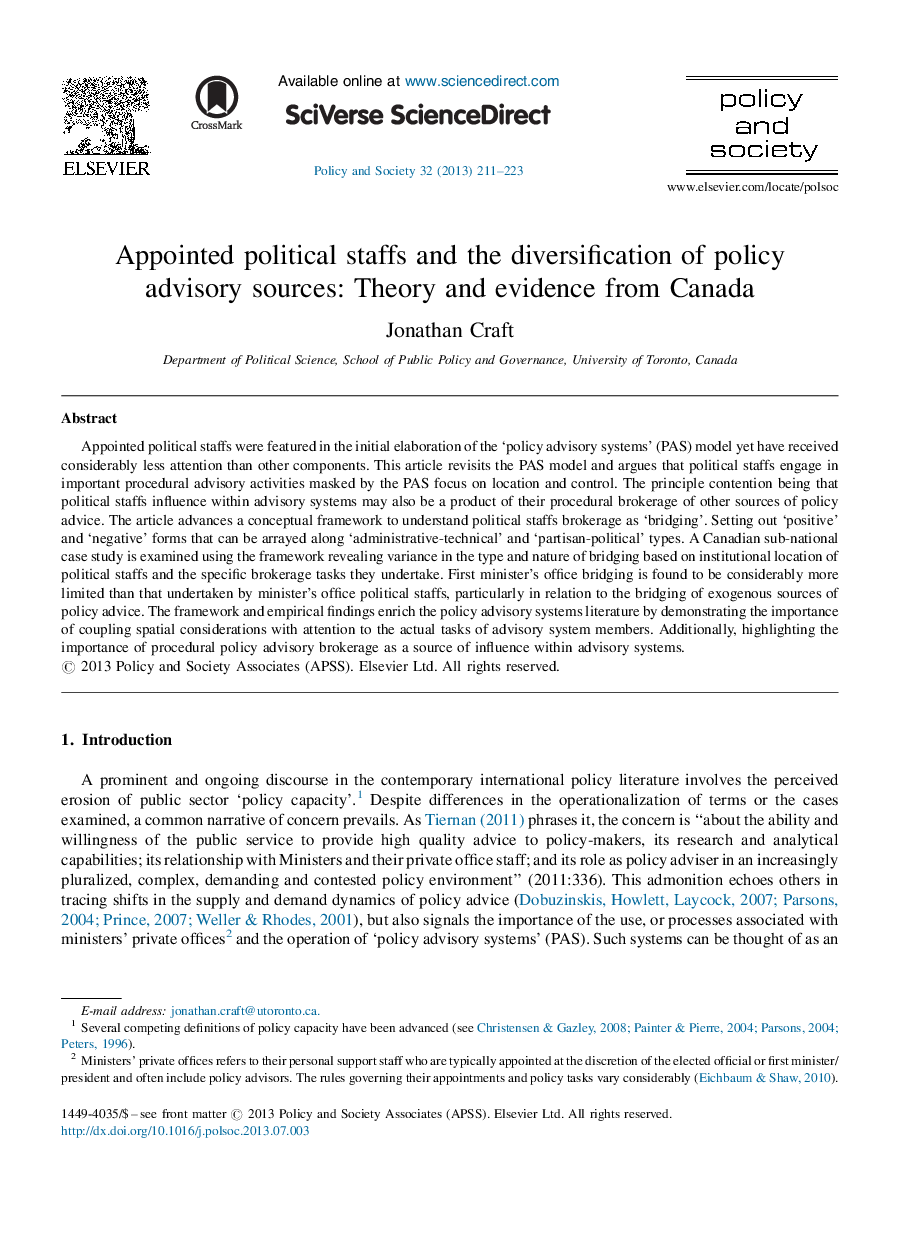| کد مقاله | کد نشریه | سال انتشار | مقاله انگلیسی | نسخه تمام متن |
|---|---|---|---|---|
| 1061549 | 947860 | 2013 | 13 صفحه PDF | دانلود رایگان |

Appointed political staffs were featured in the initial elaboration of the ‘policy advisory systems’ (PAS) model yet have received considerably less attention than other components. This article revisits the PAS model and argues that political staffs engage in important procedural advisory activities masked by the PAS focus on location and control. The principle contention being that political staffs influence within advisory systems may also be a product of their procedural brokerage of other sources of policy advice. The article advances a conceptual framework to understand political staffs brokerage as ‘bridging’. Setting out ‘positive’ and ‘negative’ forms that can be arrayed along ‘administrative-technical’ and ‘partisan-political’ types. A Canadian sub-national case study is examined using the framework revealing variance in the type and nature of bridging based on institutional location of political staffs and the specific brokerage tasks they undertake. First minister's office bridging is found to be considerably more limited than that undertaken by minister's office political staffs, particularly in relation to the bridging of exogenous sources of policy advice. The framework and empirical findings enrich the policy advisory systems literature by demonstrating the importance of coupling spatial considerations with attention to the actual tasks of advisory system members. Additionally, highlighting the importance of procedural policy advisory brokerage as a source of influence within advisory systems.
Journal: Policy and Society - Volume 32, Issue 3, September 2013, Pages 211–223